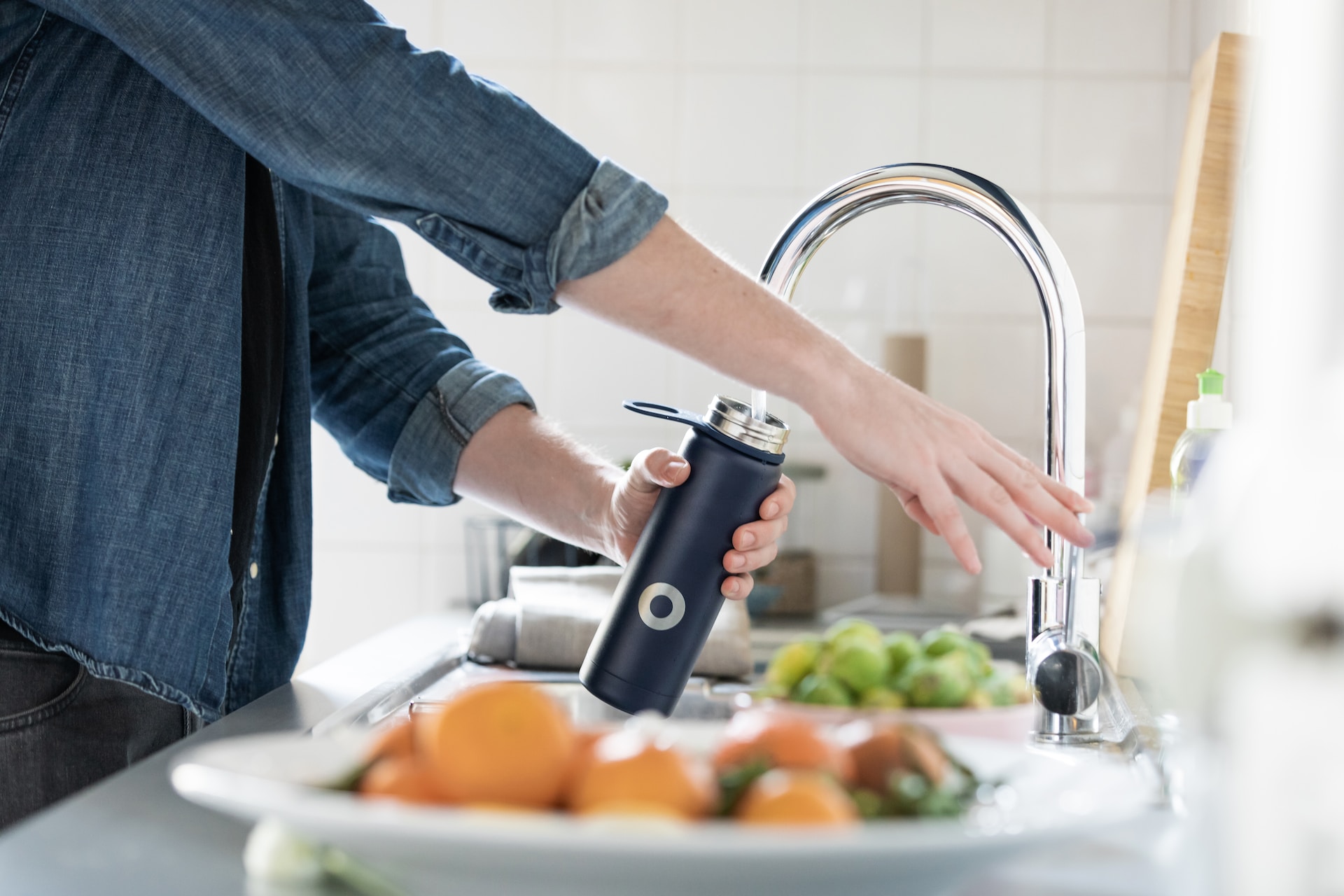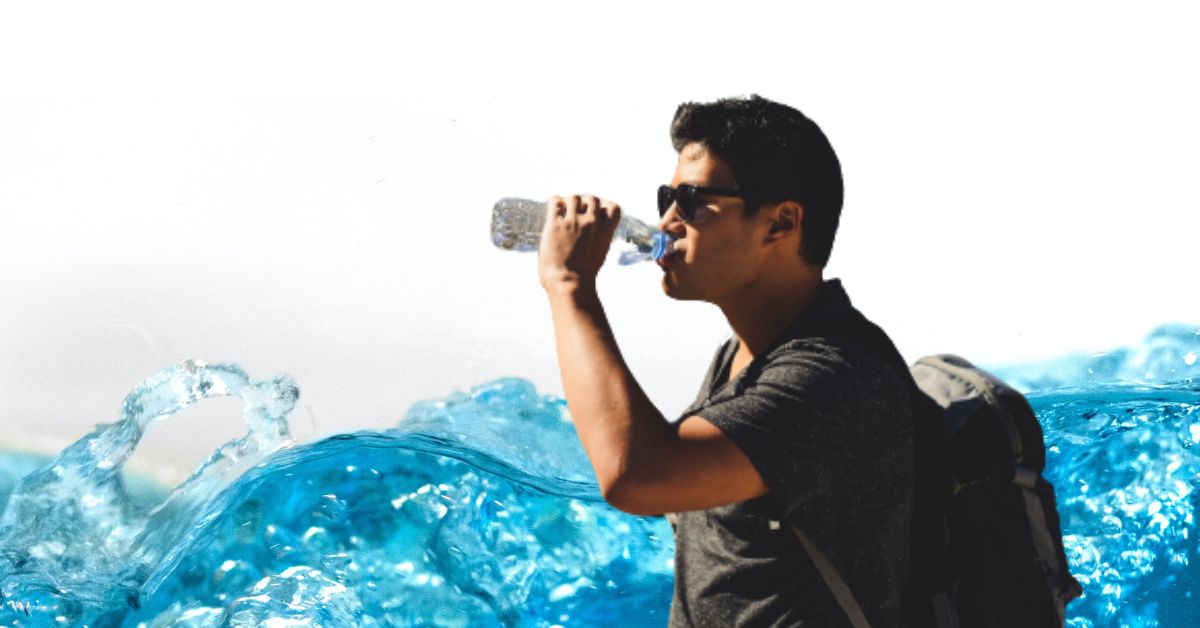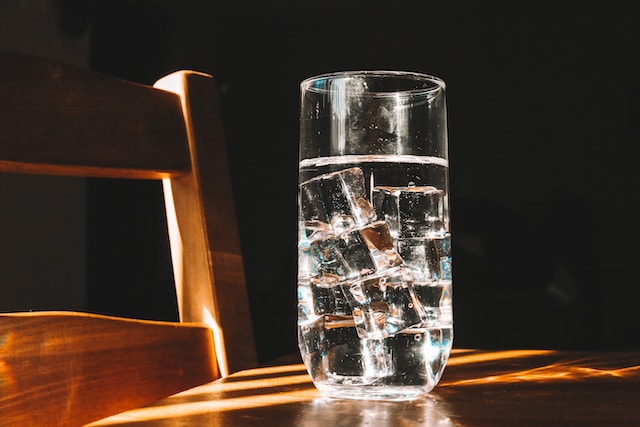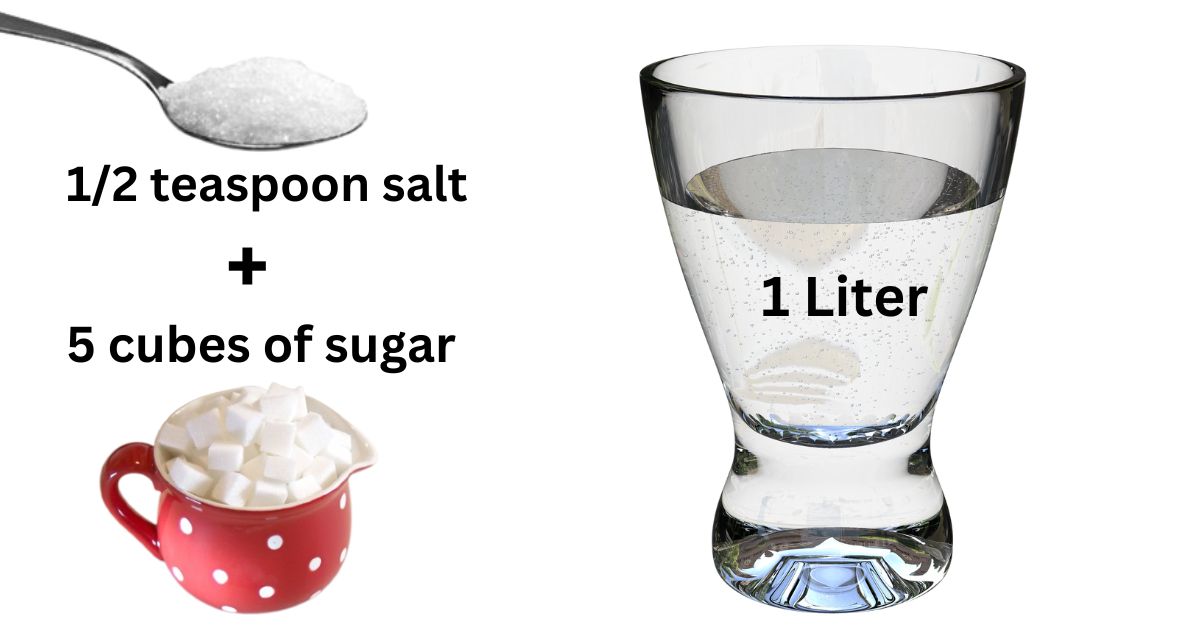Benefits and Techniques for Staying Hydrated: How Much Water Should You Drink Daily?

Water is the most abundant and one of the most important natural resources on earth. It is vital to nature and also an important component of life.
We use water for many purposes, including personal and domestic purposes (such as washing, bathing and cleaning), agricultural applications (e.g. irrigation), and industrial usage (for production, cooling systems and power generation). One of the most important benefits of water to us is that we drink water to stay hydrated.
As useful as water is, not everyone knows much about the benefits of water to the body, the amount of water to take daily and other useful information relating to water consumption and our health. Therefore, in this blog post we want to explore the benefits of water to the body, the recommended daily amount of water you should take daily, tips to help you drink sufficient water and why you should control how much water you take to avoid dehydration and excess water consumption.
Watch Video Summary of this Topic and Follow us on YouTube.
Benefits of Staying Hydrated: Why You Should Drink Enough Water?
Water keeps us hydrated and in the process offers a lot of benefits to our body. It contributes to approximately 45% to 75% of our total body weight. This makes water as important as oxygen for our survival.
Research shows that we can only survive a few days without water. This is in contrast to food that we can live for weeks without. Collectively, below are the major benefits of water to our body:




Hyponatremia

Conclusion
Water is good for your health and can save you from several sicknesses resulting from constant dehydration. Embrace the habit of drinking sufficient water everyday to stay hydrated by adhering to the techniques we have provided in this article. Don't forget to meet a physician if you experience constant dehydration or related symptoms.
- Transportation of cellular and biochemical materials in the body:
Water is the medium of material transportation in the body. Blood, oxygen, hormones, enzymes and almost every substance in the body are transported in dissolved or suspended forms through water.
Even the electrical impulses that are transmitted through nerves are enhanced by ions which exist in aqueous state in our internal body fluids.
- Water serves as the main natural solvent in our body:
Hormones, plasma components, enzymes and other biochemical substances that control life processes exist in the body in soluble forms with water acting as the primary solvent. Only a few substances such as fat soluble vitamins like vitamins A, D, E, and K are are soluble in organic solvents, and also absorbed and transported in a process similar to that of fats and other lipids.
- Water helps in regulating body temperature:
Water keeps the body cool especially when the weather is hot, thereby regulating our temperature. Taking bathe during warm weather or drinking enough water are ways to keep your body cool with water. Moreover, we naturally produce sweats in warm condition or during exercise to regulate our body temperature. When this happens, the amount of water in the body reduces making us thirsty to drink more water for the process to continue.

- Water aids digestion of food:
Our system would not be able to digest food without water. Even dried food we eat begins to dissolve in the mouth when mixed with the saliva which is a mixture of water and other substances.
When food gets into the stomach, they exist as chyme ( a semi-liquid form of partly digested food). It is in this watery form that enzymes can break down food into smallest units that are needed in the body such as glucose, fatty acids, amino acids and vitamins. Also, the absorption of digested food is still in soluble form.
- Water flushes out waste products and toxins from the body:
Drinking water helps to remove toxins, waste products and other harmful substances from the body. Example of such waste product is urea (a waste product of protein synthesis), and excess salt, which are removed from the body through urine and sweat.
- Water maintains homeostasis and electrolytic balance:
By removing waste products, toxins and excess chemicals from the body, water keeps the body's biochemical system and internal variables regulated and balanced at a required level, a process known as homeostasis. It is a collection of this and other processes that maintain a constant internal environment against external stimuli and keep the electrolytic balance within the body at a life supporting pH.
- Drinking enough water boosts the immune system:
Besides flushing our toxins, water also removes foreign bodies from our body. A good example is the cleaning of our urinary tract and bladder by urine.
- Water serves as body lubricants and helps in joint cushioning:
Our joints, genitals, respiratory organs, eyes and digestive systems are lubricated by water-based fluids. Even our mouth and throat feels bad when there is no enough saliva. Our eyes must be wet always and it is all because of water in the body. When one suffers from dehydration (shortage of water from the body) those organs may experience dryness which comes with several adverse effects.
NB: Details of dehydration is provided at the end of this article.
- Water boosts our mental focus and brain functionality:
Dehydration can cause poor brain performance which can be remedied by drinking enough water. This is because when your body lose more water than it takes, there is going to be a feeling of fatigue, dizziness and other symptoms that can interfere with brain performance.
Your brain needs water to perform well because the whole process of nutrient transportation around the body and to the brain occurs by the aid of the body fluids.
- Water provides protection, shape and support to delicate parts of the body:
A good example of this is the eyes. The aqueous and vitreous humor provide nutrients and shape to the eyes and promote its refractive and visional functions. The amniotic fluids which protects the fetus in the womb is made up of water as major components. This is how much your body needs water.
- Water is the major component of most body fluids:
The saliva, tears, reproductive fluids, and others have water as their major components. Without water, sweating and urinating would be impossible.
- Water helps in weight control and minimize the risk of obesity:
Taking water while eating will foster early satisfaction thereby reducing the amount of food we take at a time. Also, taking sufficient water can reduce hunger, cravings and thirsty for other drinks that can be detrimental to health. This can be helpful during hot weather when the urge to drink sugar based carbonated drinks increase. By taking enough water, the urge to take other drinks reduces.
- Water plays vital roles in controlling blood pressure:
Experts believe that keeping the body well hydrated by taking enough water can help keep the blood pressure at standard level. This is so because dehydration can raise blood pressure level. If that is the case, drinking water can remediate the condition.
Finally, water helps in reducing stress, energizes the body and also promotes a healthy looking skin, as well as providing many other benefits to the body.
Finally, water helps in reducing stress, energizes the body and also promotes a healthy looking skin, as well as providing many other benefits to the body.
Techniques for Drinking Enough Water: How to Boost a Healthy Lifestyle of Drinking Sufficient Water.

1. Set a target goal on the quantity of water you want to take daily:
Making up your mind to increase your water intake is one of the known techniques to increase your daily consumption. The amount of water you need to take depends on several factors which include your body weight, weather condition, your activity for the day and your gender. Set a goal and target that number of cups and you will be able to accomplish it.
2. Always have a bottle of water with you:
It is good to have a water bottle around you in the house, in your car or when you are out for a meeting. The good thing is that there is hardly a public meeting nowadays that the host do not offer attendees some bottles of water.
Having a bottle of water beside you will make you have the urge to drink it often, even when you are not thirsty. You don't need to drink a whole bottle at a blow, the little sips you take can go a long way in providing the hydration your body requires.
3. Set timing and reminders:
If you realize that you don't like drinking water, it is important to set reminders that you need to take a cup of it. Sometimes you may not be able to meet your goal, hence, timing when to drink can be the only option you have. You can set reminders or include it as a mandate to drink a glass of water in the morning, afternoon and evening or just in between.
4. Add flavor to your water:
This is the last thing most people would remember to do but you can purposely flavor your water to encourage yourself to drink. You can add herbs, tea, juice, or any natural additive to help you see the need to drink more; or simply use water to dilute that wine.

The most popular means to flavor your water at home is by adding slices of lemon, cucumber, lime or other citrus fruits. Note that most water-based liquid drink you take is part of your water intake for the day, but do not rely on artificially produced drinks.
5. Take water rich fluids and vegetables food:
Vegetables like cucumber and water melon contain high amount of water and taking them can help keep your body hydrated. Taking these and similar fruits will help add to your daily water consumption level.
6. Get packaged flavored water from the groceries:
Most super markets and grocery stores have already packaged flavored and sparkling water. Get them into your shelf. You might find yourself wanting to drink more water for the characteristic tastes they offer.
7. Make your water a bit cold:
There is more urge to drink cold water over lukewarm water. Making your water a bit colder will encourage you to take more, especially when the weather is hot. If this is how you like it, then go for it to stay hydrated. Nonetheless, it is good to reduce cold water intake as they have adverse effects in the body. Cold water affects the teeth and digestion process. It also alleged to constrict the blood vessels thereby interfering with blood pressure.

How Much Water Should You Drink Daily.
Generally, experts recommend that one takes about 8 to 15 cups of water daily which are approximately 2.5 to 3 liters depending on the individual.The U.S. National Academies of Sciences, Engineering, and Medicine recommends daily water intake of approximately 3.7 liters (15.5 cups) for men and 2.7 liters (11.5 cups) for women. This amount involves the total number of drinks and water containing food per day, implying that even the fruit juices you take and the tea volumes are part of the given values. However, the actual amount of pure drinking water one should take in a day is 8 cups minimum, excluding other drinks.
How Much Water is Too Much for Your Body?
When your total water intake per day exits 3.7 liters, then it is too much. For women, anything up to 3 liters is considered excess.Taking too much water is not also good for health, the effect may not be serious but it is recommended that you keep the balance on the amount of water you take daily.
When does the body need more water?
Water intake may increase during exercise, hot weather condition or pregnancy. It is recommended for athletes to drink large quantity of water as they may sweat during their exercise. Also, pregnant women also need to drink enough water but not excess to avoid adverse effects.
Dangers of drinking too much water and Hyponatremia
For healthy individuals and young people, your body might be active enough to remove the excess water. But in situations where the kidney overworks and can no more remove the water, your body system may get diluted, a medical condition referred to as hyponatremia.Hyponatremia
Hyponatremia is an electrolytic imbalance in the body which occurs when the sodium level in the blood drops too low causing symptoms such as headache, nausea, confusion, muscle cramps, and fatigue.
The condition can become severe in rare cases and result in coma, seizures or death. It is caused by drinking too much water, taking certain medications, or due to some medical conditions. If it is caused by excess water, then reducing fluid intake can cure the condition. In extreme cases, immediate medical assistance is required to save the patients life.
Effects of Insufficient Water in the Body: Dehydration
Insufficient water in the body results in dehydration. This is a process whereby the body releases too much water more than it takes resulting in many health related issues.
Dehydration is caused by excessive sweating, diarrhea or when one does not drink enough water to keep the body hydrated. Symptoms of dehydration include thirst, headache, fatigue, dryness of mouth, decrease urination, sweating, dizziness, weight loss and the most obvious is the urine becoming concentrated and having dark-brown color.
Dehydration can be treated by increasing water intake, during exercise and stressful activities that can sweating and food high in water contents such as vegetables and fruits. In situations where dehydration is serious, oral rehydration therapy (ORT) is required or an immediate medical attention which may require intravenous fluid injection.
Oral Rehydration Therapy (ORT):

Oral rehydration therapy is a kind of treatment administered to a patient suffering dehydration by making him/her drink a special hydrolytic drink made from water, sugar and salt (of sodium or potassium). The most popular salt used in preparing the drink for ORT is the common table salt.
You can produce ORT fluid at home by adding a half level (1/2) teaspoon of salt and five cubes (6 level teaspoon) of sugar in one liter (1000 ml) of clean water as shown in the image above. Adult can take up to 200 ml each moment.
This treatment is of urgent need for dehydration resulting from serious conditions like diarrhea. Dehydration of this nature requires urgent medical attention; so, contact your doctor immediately for advice.
Note: For other disadvantage of dehydration, consider the benefits of drinking enough water.
Water is good for your health and can save you from several sicknesses resulting from constant dehydration. Embrace the habit of drinking sufficient water everyday to stay hydrated by adhering to the techniques we have provided in this article. Don't forget to meet a physician if you experience constant dehydration or related symptoms.







